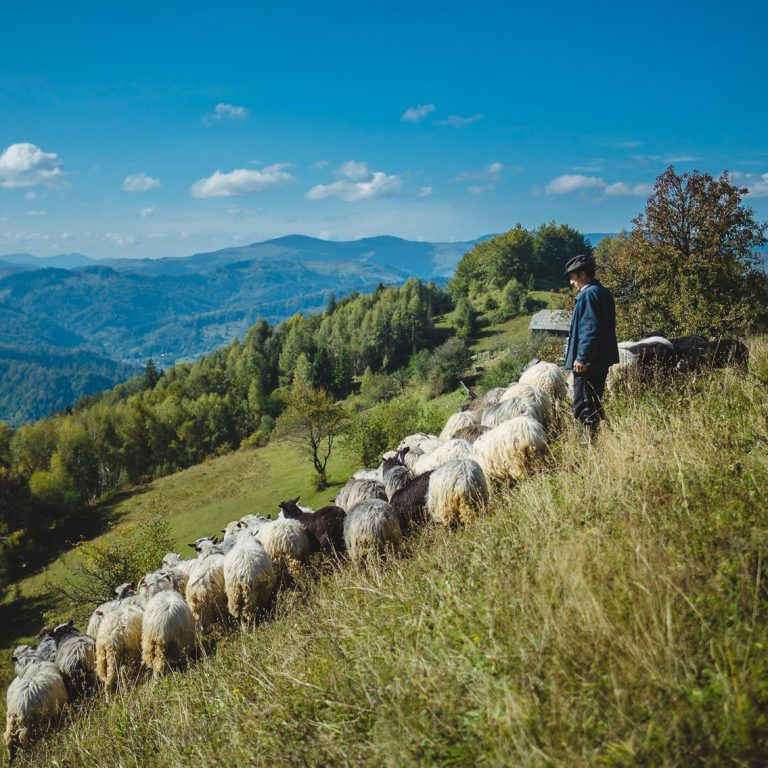Cheesemaking is a long-standing craft in the Carpathians. The locals were making cheese using sheep and cow milk. The original recipes were passed from generation to generation. However, very few people make cheese nowadays. The youth is sure that grazing, taking care of animals, collecting milk and, of course, the process of cheesemaking itself is an unprofitable and hard way to earn for a living.
A married couple of Vasyl and Mariia Petrychuk are both shepherds. The couple has no intention to give up their business as they got used to the activity they dedicated their life to. What is more, the Petrychuks have no successors to pass on their legacy. Vasyl Kirmoshchuk, on the contrary, is the youngest chief of shepherds on the Carpathian valleys who took over the family skill. He does his best to turn grazing and cheesemaking into a true business.
Shepherds. Sokilskyi Mountain Range
The Petrychuks family have been living and working on a Carpathian Sokilskyi Mountain Range between Babyn and Yavoriv villages for 8 years already. They spent their lives breeding sheep and making cheese.
They used to live near Mount Hoverla. In the Soviet era the so-called kolhosp (collective farm) sent Vasyl and Mariia to work in that region and gain the labor experience.

Eventually, the married couple decided to return to their homeland. They come from Yavoriv village. Mariia says that Vasyl was her neighbor and that was how they met.
— He lived not far away from us. Our cattle would go there, theirs would come here. It would be impossible not to meet each other. It was 42 years ago.
Vasyl got his love to sheep breeding from his father who tended the sheep too. Despite the age, the Petrychuks are not planning to stop their business. They say that now it’s like a habit for them.
— I can’t help it. When the winter is over and the spring is almost over I think to myself, “Hey, I can start working already!” So we start working, — says Mariia.
There are almost no houses left nearby. The closest populated area is Yavoriv village. The Petrychuks go there once or twice a week to get some food and wood. That is what they keep a horse for.
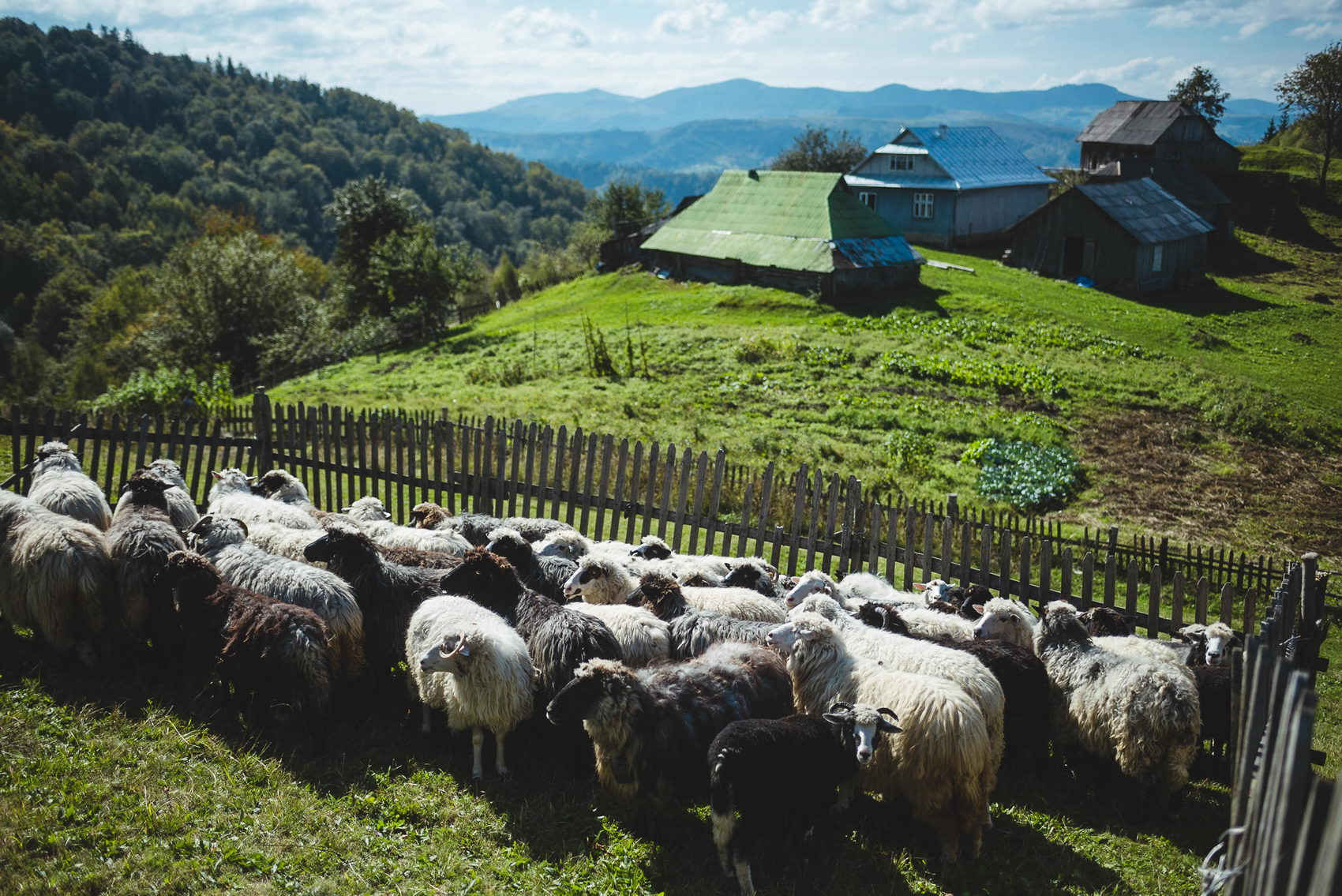
During the grazing season that lasts for 4 months, Vasyl shepherds his flock of sheep every single day. The couple owns a herd of 50 sheep among which you can also find rams and lambs. The newborns appear once or twice a year. Some of them are sold, some are kept.
Vasyl and Mariia do not increase their flock as the more sheep you farm the more food you will need to raise them. Moreover, the Petrychuks also raise cows. They do not breed the sheep for food since they don’t like how the mutton tastes.
In summer, farmers give their sheep to Vasyl for grazing, milking, and making bryndza. The owner pays Vasyl 150 hryvnias for a dry sheep for the whole summer season while for keeping a milk ewe Vasyl gives the owner 2 kilos of bryndza. This is the way the Petrychuks earn for a living during warm seasons. Sometimes, they graze the flocks of 250 sheep!
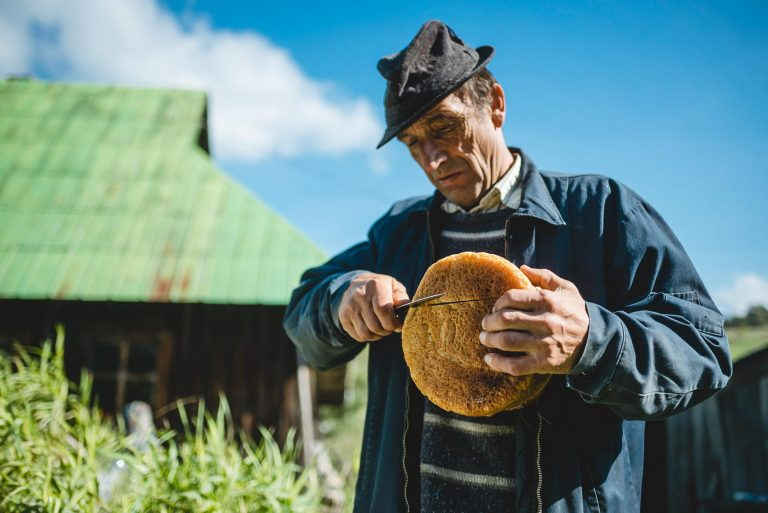
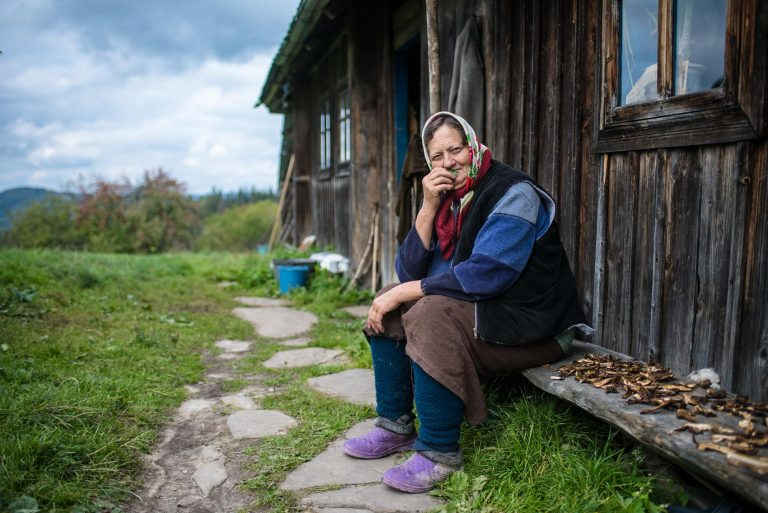
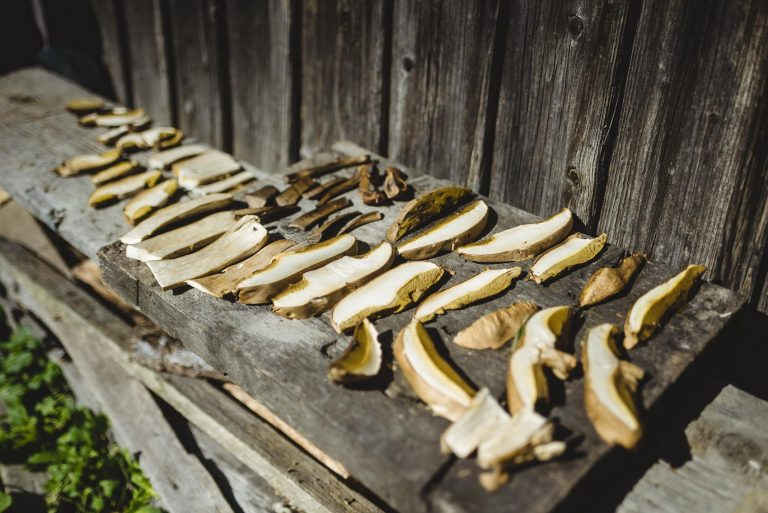
slideshow
Vasyl and Mariia breed sheep and make cheese only in summer. In addition to their usual chores they also collect mushrooms and dog-roses to make tea.
In winter the ewes produce lamb. During the cold season, the Petrychuks keep taking care of their farm. Besides that, Mariia makes woolen blankets (you can find more information about wool and the process of making woolen blankets in the following article Carpathian Lizhnyk – A Hutsul Invention) and slippers for sale.
You can get 3 kilos of wool from one sheep. Then you put that wool into the boiling water, rinse it several times and brush it with a special comb. Afterward, you can spin the wool. It is possible to get 10 pairs of shoes from the wool of a single sheep.
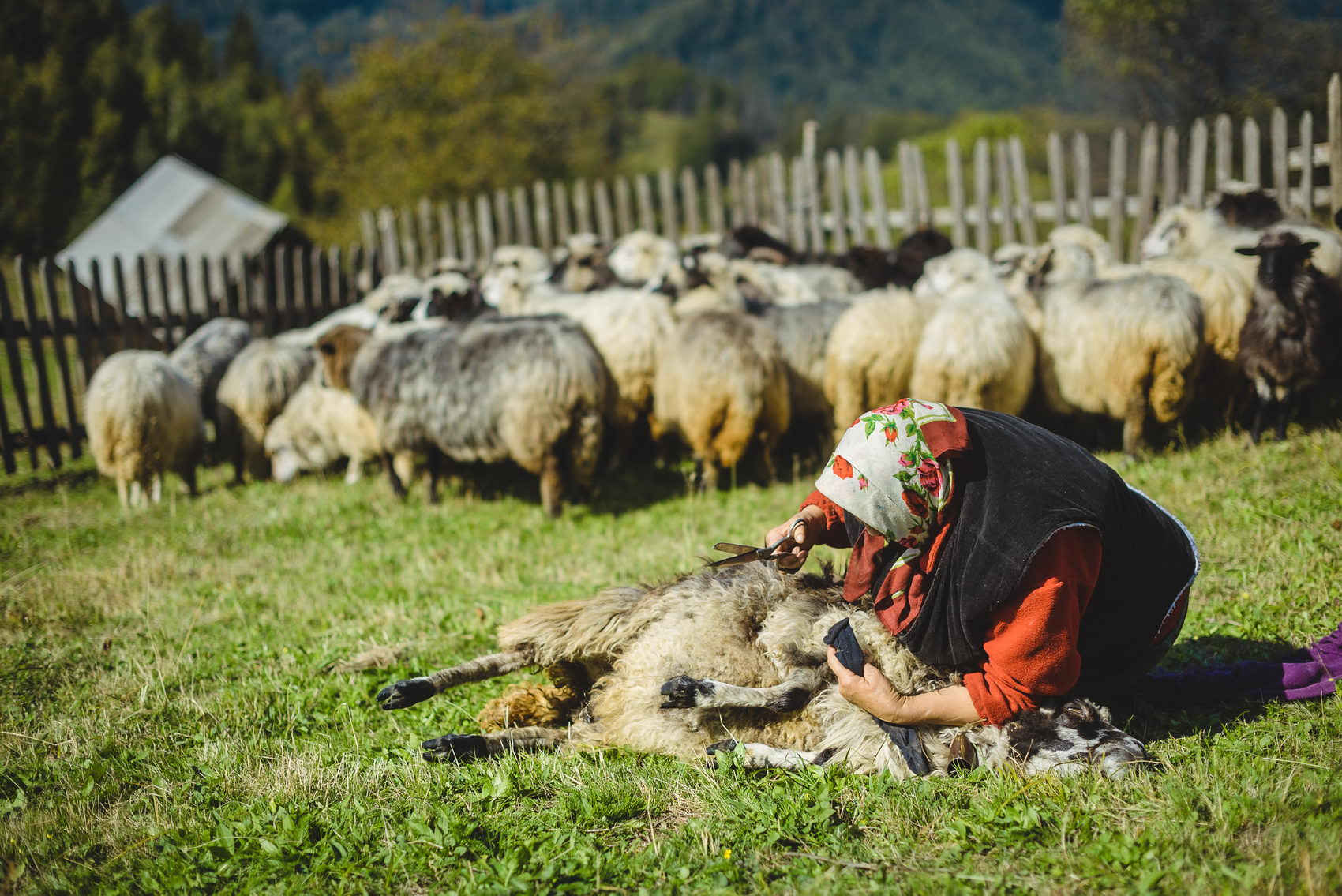
Mariia and Vasyl shear the sheep only once a year when it is warm outside and there is a reason for that. The breed they raise may freeze in winter if sheared twice a year.
Shepherds collect hay to feed the flock in winter. Vasyl also uses mixed feed and sometimes he makes the animals happy by giving them a bit of salt. In summer sheep stay out in the pasture. The man says that sheep may even eat some poisonous mushrooms since these mushrooms do no harm to them.
The herd got used to its owner. They get together and approach him. Vasyl says that when the flock is grazing, you can run the household. The main thing is to keep track of time.
— Well, they know me. They are used to me, — he explains. They got used to be provided with (food — author’s note). They are afraid of strangers and they don’t trust them.чно.
Vasyl is sure that sheep need a week or two to get used to another shepherd. It is easier with cows. Last summer a local cowherd tended and watered their cows.
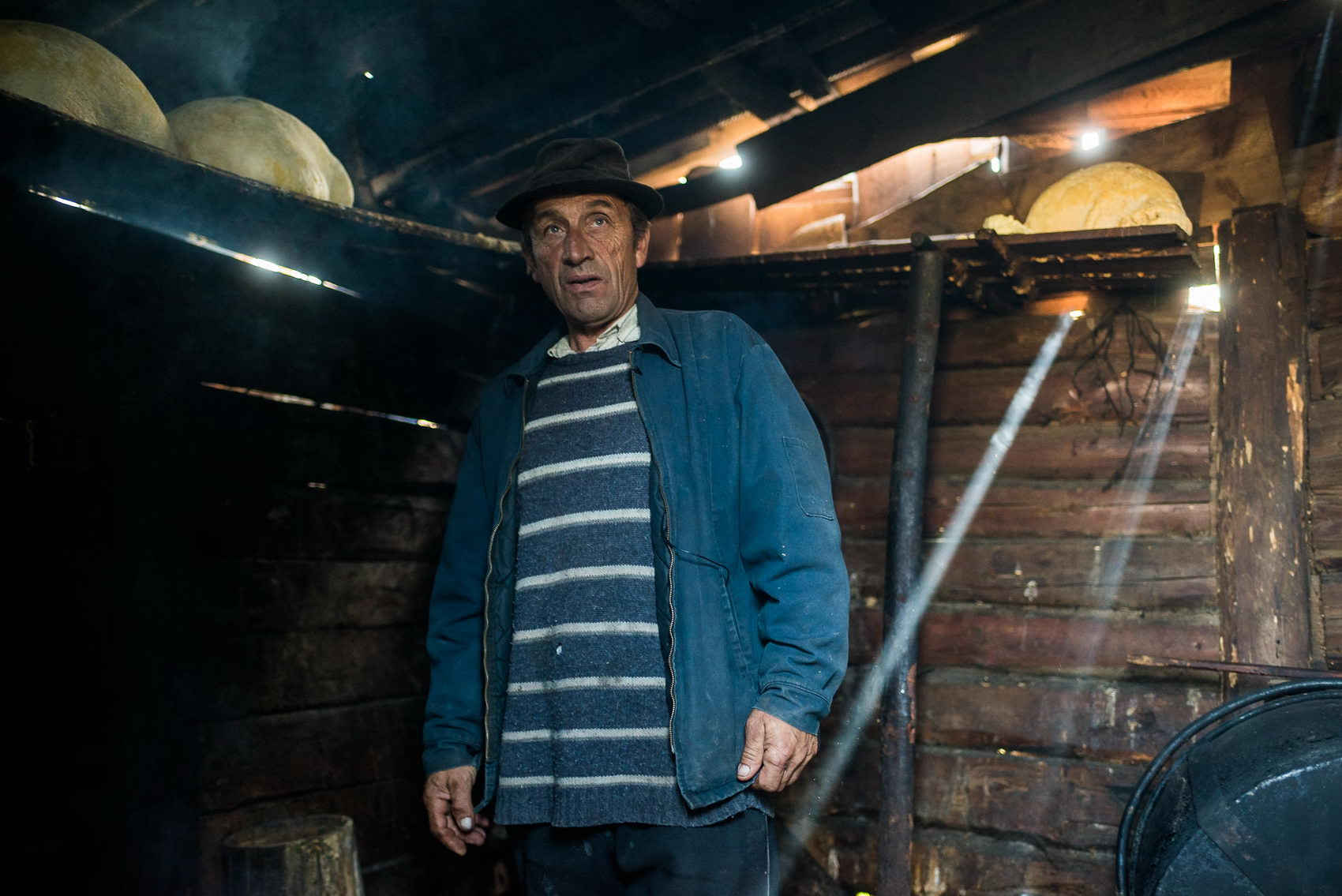
Cheese making
The Petrychuks make bryndza, vurda (the boiled cheese of Hutsuls — author’s note) and budz (cheese made of milk and hleh, an enzyme of calf’s stomach, which sours the milk — author’s note).
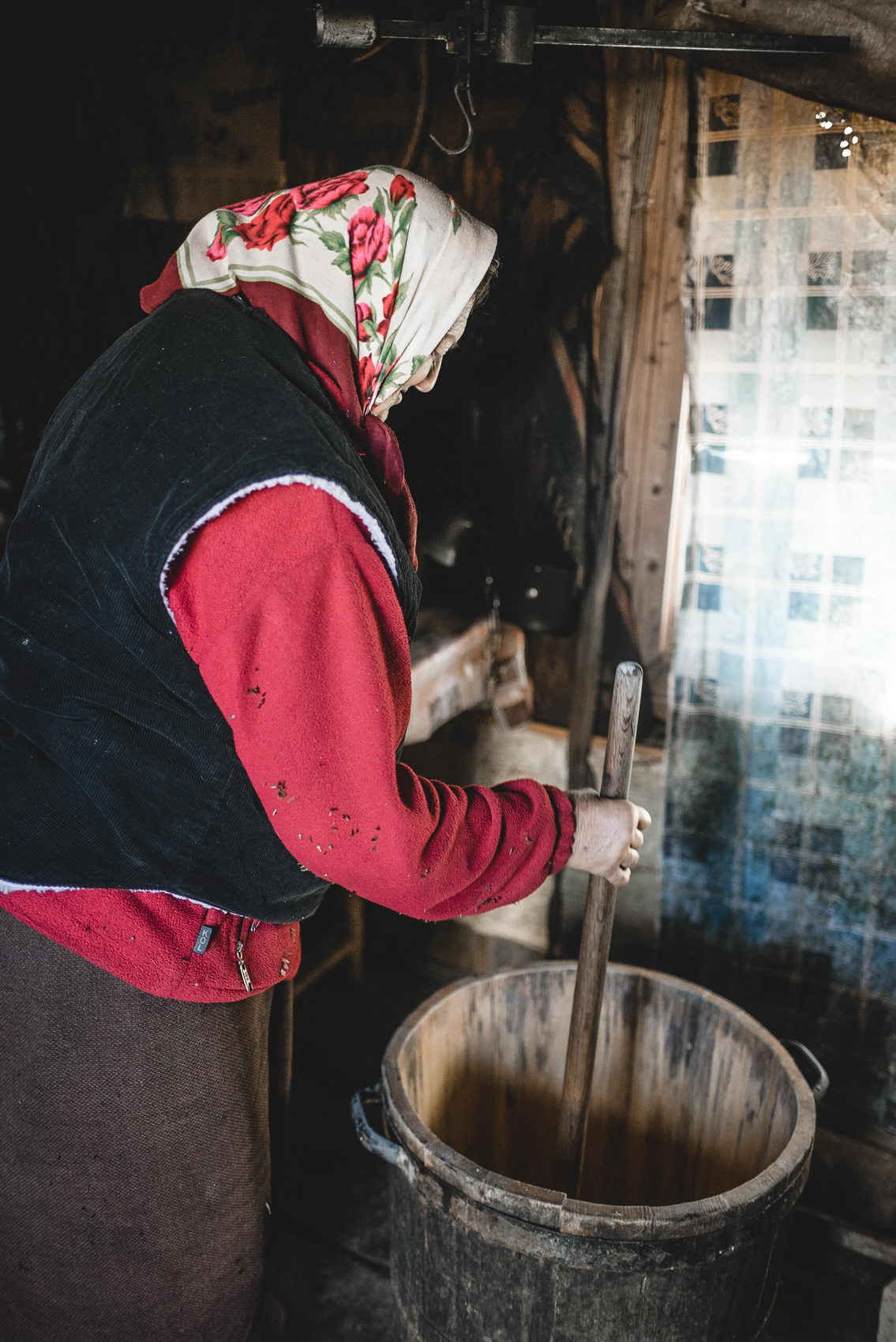
They make cheese every morning and evening in summer after they milk the cattle. Vasyl does everything himself. In the morning, he has to get up at 4-5 am. All the work is done at approximately 10 pm when all the milk is collected. In the evening there is always less milk than in the morning because the cattle get tired throughout the day.
The first thing to do is to warm the milk up to 30°C in order to add hleh. The Petrychuks usually borrow hleh from their neighbors. If the cheese gets too hot, it will be too hard and will lose its taste. When it is cold outside, the milk is heated up to 33-35°C. If the weather is hot the cheese needs to be 28°C warm. Hutsuls that make cheese say that morning milk has a perfect temperature. You can add some evening milk and make cheese without additional heating. In fact, this is the way the cheese was made in the past.
Milk with hleh is left covered for 2 hours so the ferment could do its job. A new solid mass is pounded with a special wooden pestle. Eventually, the cheese settles down and there is whey (serum) left on top of it. The cheese curd is taken out with the help of cheesecloth and all the unnecessary whey is drained. Actually, this is the way we get budz.
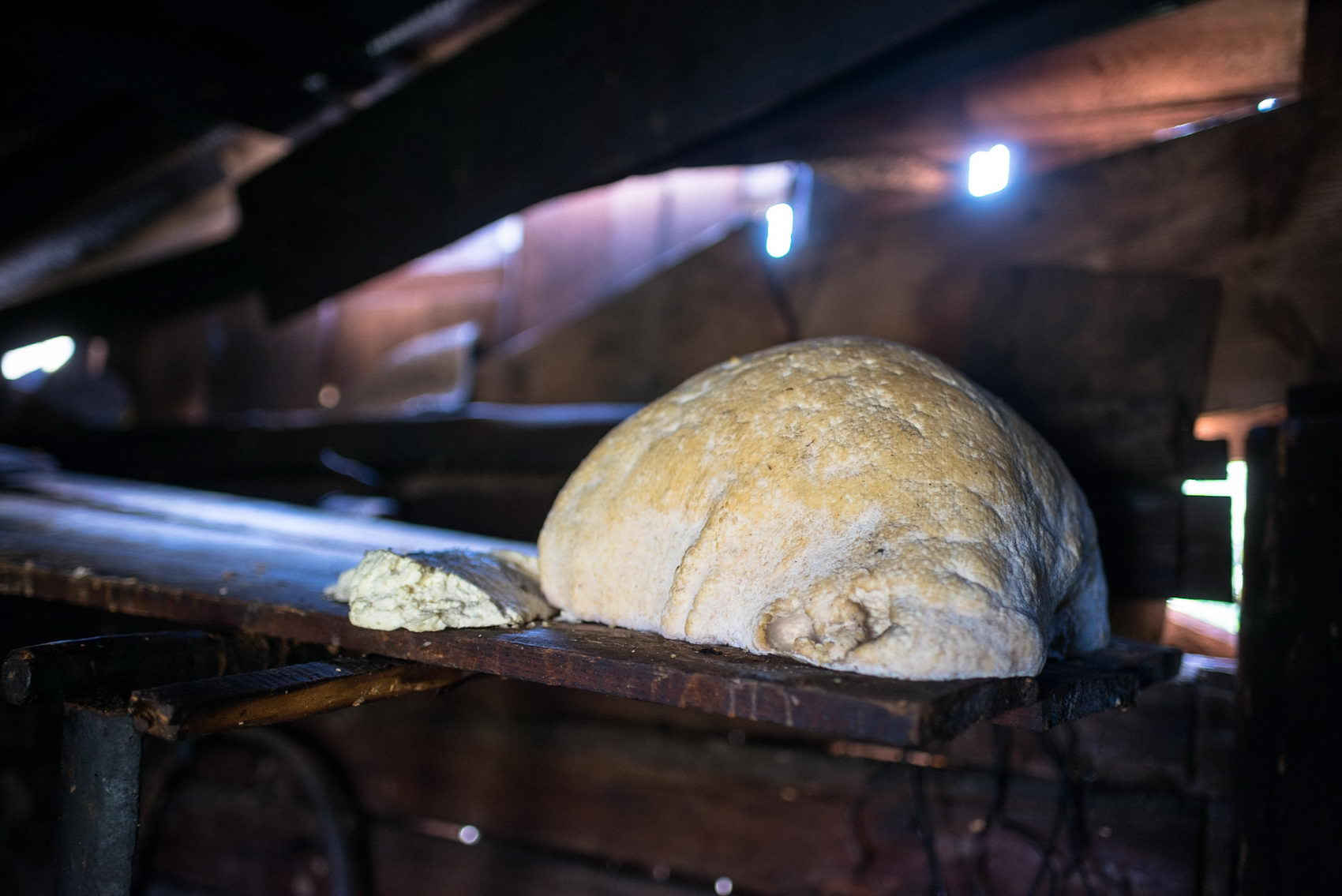
After boiling, budz is left for 5-7 days to dry. During this process, it acquires a particular yellow color. The Petrychuks sell a part of budz as a final product. All the rest is processed into bryndza.
Whey that is left from making budz is poured into a bucket. Then they add some milk and make vurda. This type of cheese requires a 2-hour boiling. Unlike budz, vurda raises while boiling. After that, the cheese is dried and smoked. Vurda has either sweet or salty taste. The locals are sure that this Hutsuls’ cheese is extremely nutritious as it contains a lot of Calcium.
Bryndza is made of budz and vurda leftovers, and salt. Two types of cheese are ground and put firmly into a special wooden barrel called “berbenytsia”.
Bryndza and vurda are smoked in podra (the attic over a stable — author’s note). A bonfire is made specifically for this occasion. It’s necessary to turn the cheese from one side to another from time to time while smoking. This process takes 4-5 days. Vasyl says that in the course of time you get used to the smoke.
Hutsuls bryndza is crumbly and salty. Salt and smoke make bryndza a long-lasting product.
The Petrychuks make 15-20 kilos of cheese a day. They sell a part of it and keep the rest. The locals and tourists also buy Petrychuks’ cheese. A kilo of bryndza costs 50 hryvnias. They charge 40 hryvnias for the same amount of vurda.
They do not earn much doing what they do. However, Vasyl and Mariia do not want to quit such hard work.
— Well, we are used to the fact that we must do it. Young people don’t want to get used to this work. They want a lot of money and there isn’t much money here. We are pretty old, and we are absolutely fine with the amount we get.
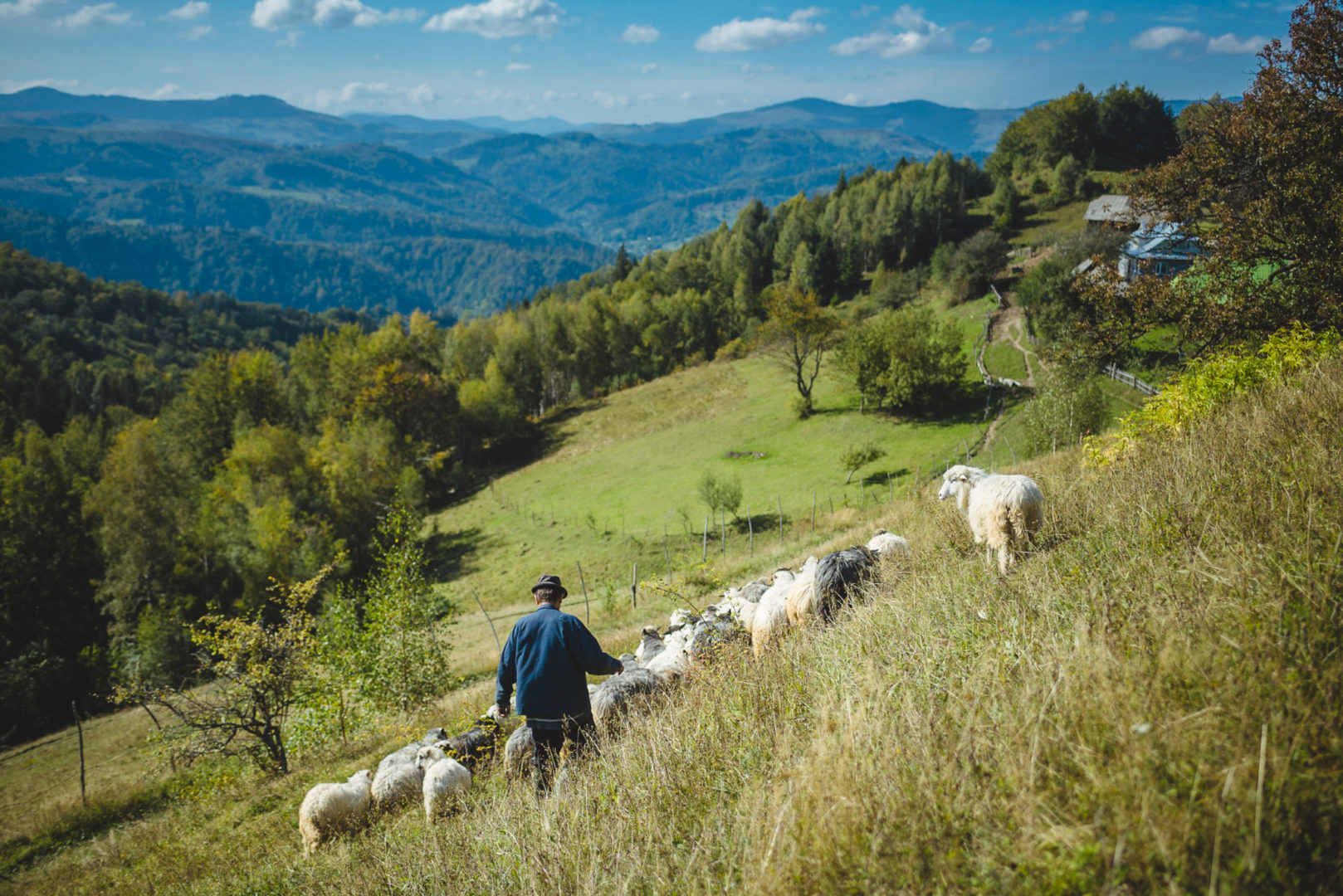
The Petrychuks have nobody to pass their knowledge to. The married couple has two daughters, but Vasyl thinks that sheep breeding is something that a man should be doing. Presently one of their daughters works in Poland and the other one weaves shoes in Babyn village. Petrychuks’ grandson lives with them and helps them around the house. Still, he doesn’t want to be a shepherd in the future.
Mariia says that there were much more shepherds nearby. Nowadays, only a few breed sheep.
— If they won’t find any other job, they will do this one. People went abroad and only the old stayed to guard the land.
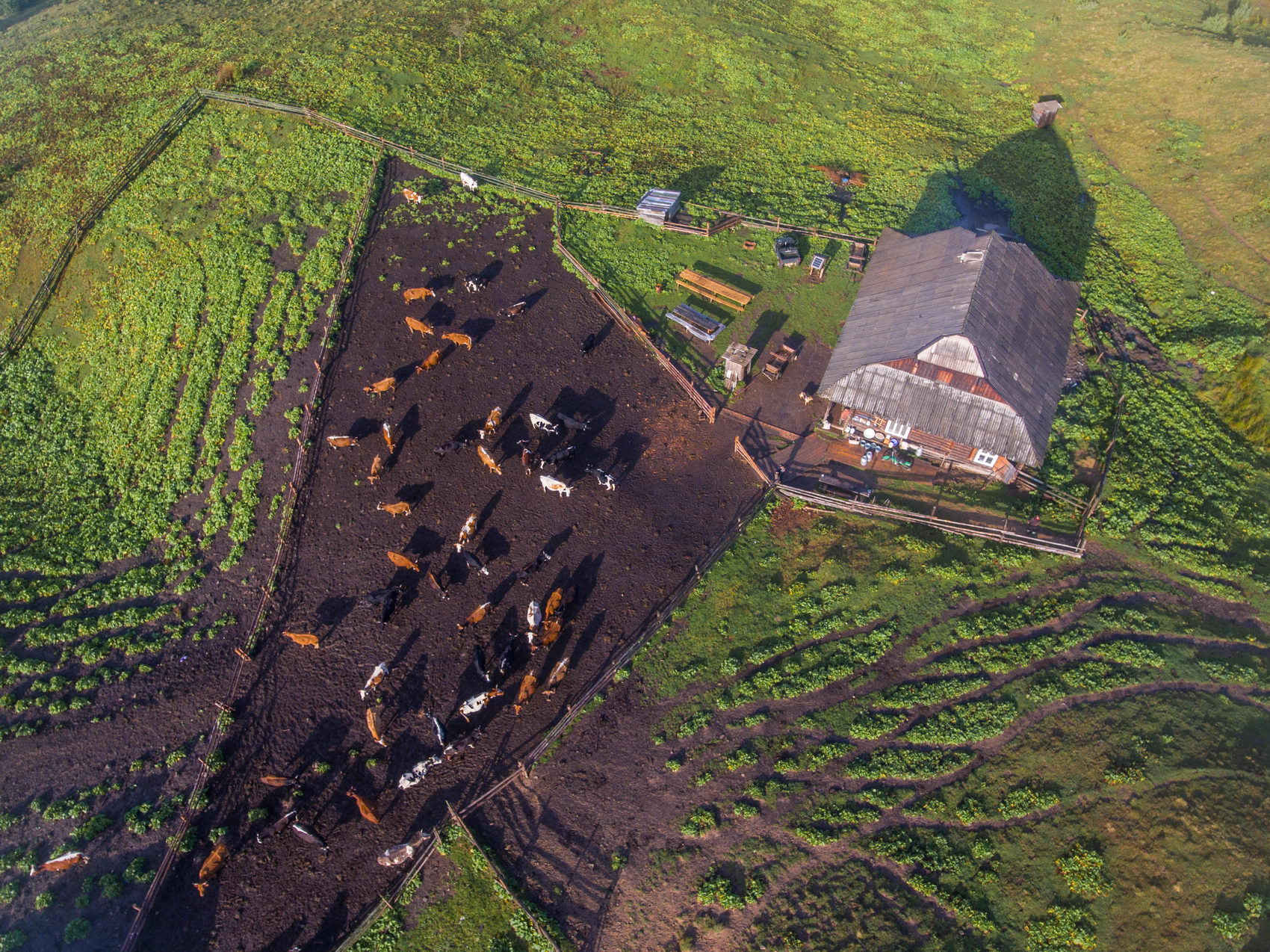
Bovhars. Polonyna Krynta
Cheese makers and bovhars from Polonyna Krynta decided to turn a traditional activity into a profitable business. For two years already, young boys have been grazing cows and making cheese they sell on their own. Their leader Vasyl thinks that such business holds promises.
Vasyl Kirmoshchuk is the youngest chief of herdsmen in the region. He is just 22 and he comes from Verkhovyna Town. His family was in this business. One of his grandfathers was a bovhar, another one was a chief of herdsmen. Vasyl’s parents also had cows. Vasyl was helping them to milk cattle when he was a child. Later on, his father took him to polonyna to work. Being only 12 years old, Vasyl already could manage all the work on his own, he was shepherding and making cheese.
Bovhars
Bovhars are herders who graze cows.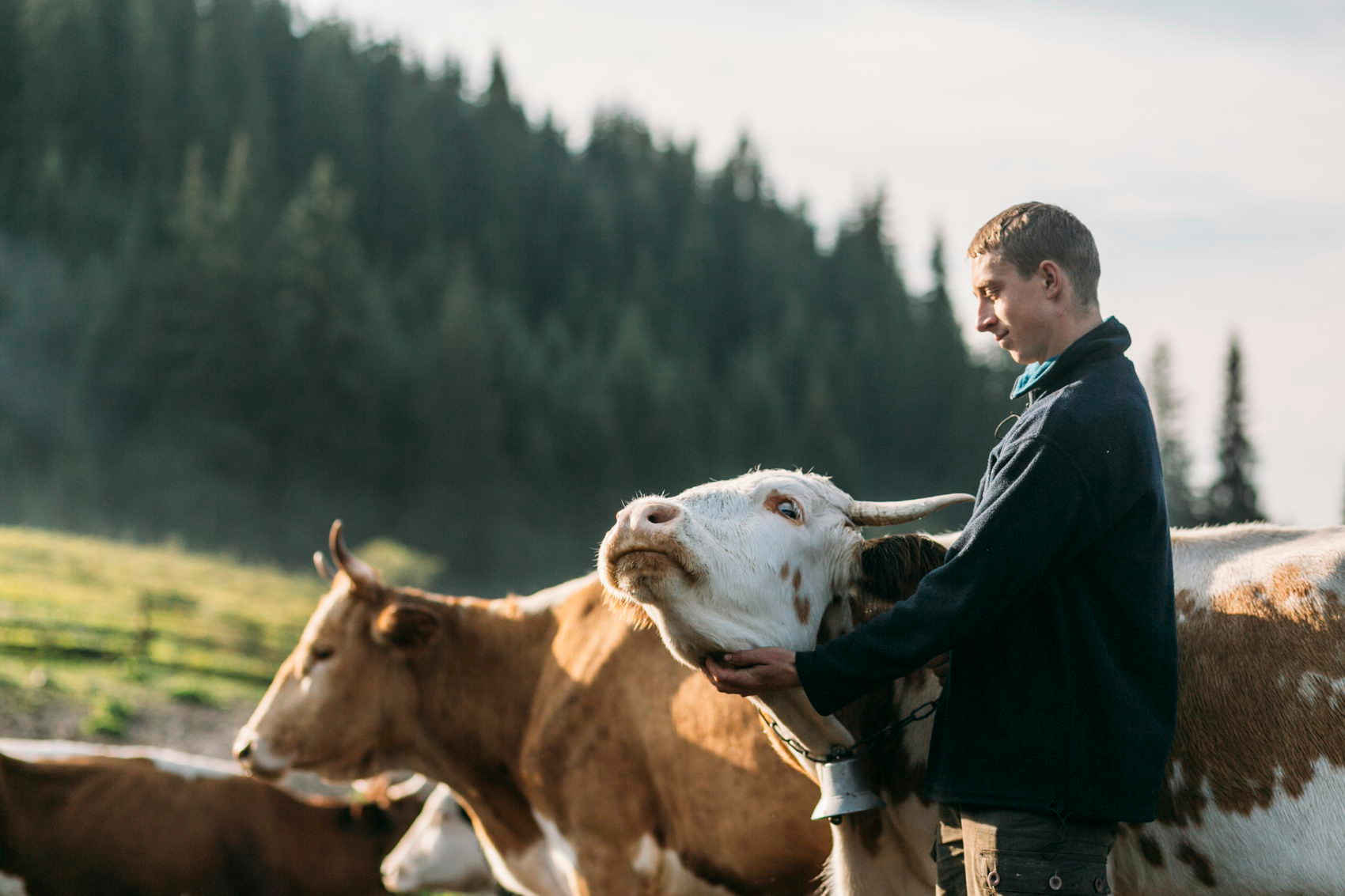
At first, the young boy worked at Polonyna Vesnarka near Pip Ivan (Chornohora). Later on, he said, he wanted to stay closer to the house. The local boys gathered, found Polonyna Krynta near Verkhovyna, rented the area and began working. Vasyl’s parents helped the boys to implement their idea.
Vasyl says that cattle have been grazing at Polonyna Krynta for a very long time. There are so-called staias that are more than a hundred years old.
Bovhars graze the cattle from the surrounding villages. This year they had 52 cows, 30 calves, and 13 horses. Last year, there were 110 animals. Vasyl explained that the number of livestock depends on the size of a pasture. In spite of great demand for cheese, there is no need for more cattle. Every pasture can accommodate a certain number of animals.
Staias
Staias are the Hutsul herdsmen’ dwellings on polonynas.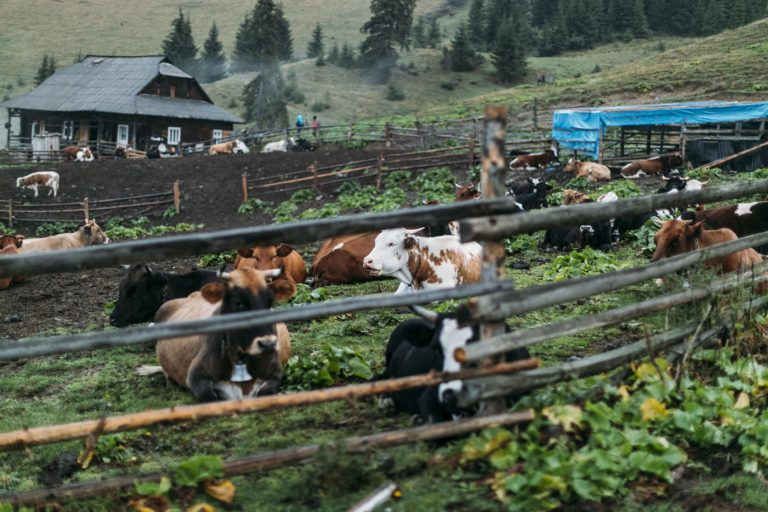
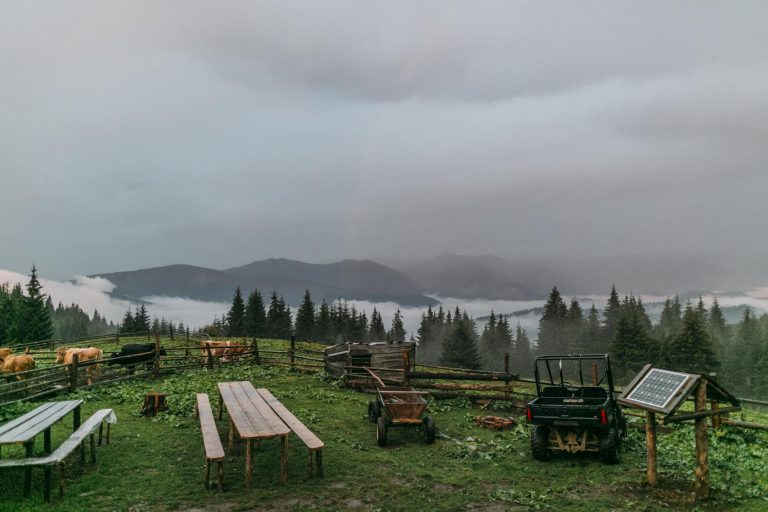
slideshow
Usually, the owners give cows to the bovhars they know personally. Therefore, reputation matters a lot in this business. People trust Vasyl, they give him their cattle, which means they trust him:
— Well, as you can see, they do trust us. A hundred animals is a lot. This is real trust.
The boys used to breed sheep too, but they never liked doing that. They say one has to spend too much time looking after sheep.
Vasyl said that people used to do sheep farming more in the past than they do now. Nowadays, very few people do it. The main reason for that is loss in wool value and a lot of care you have to take for the sheep.
— This is a hard work. Everyone wants to move to cities. You have to pay for the fences too, because they (sheep — author’s note) are like rats — they will sneak into every hole. It is easier with cows though.
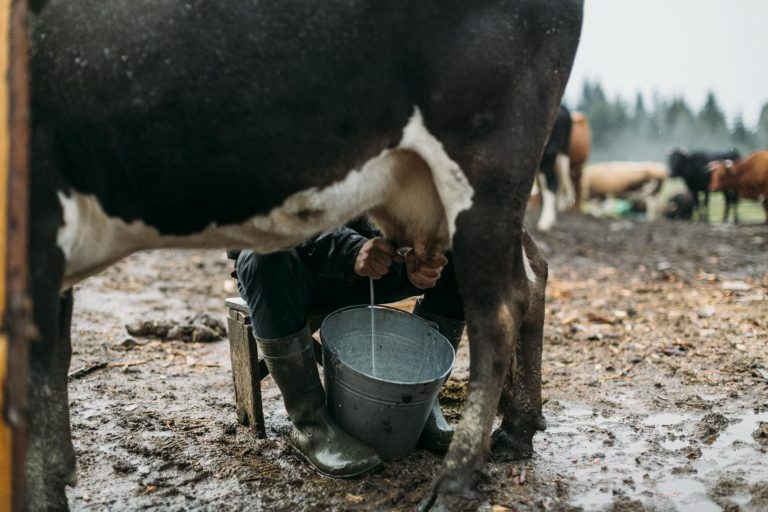
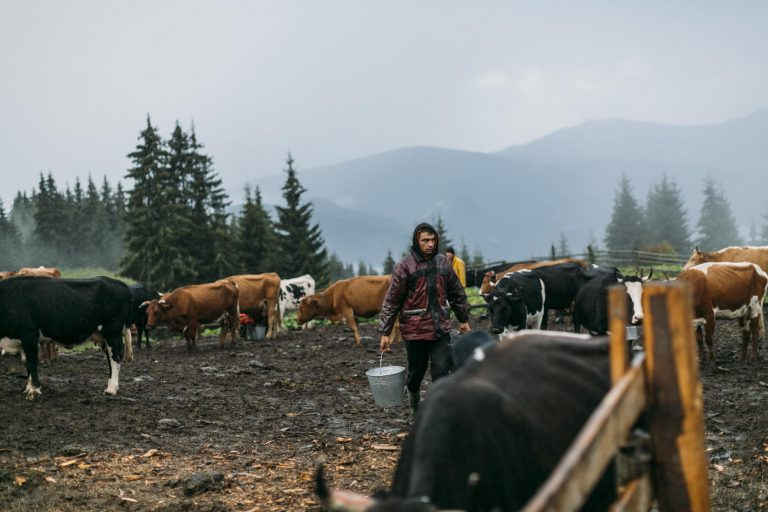
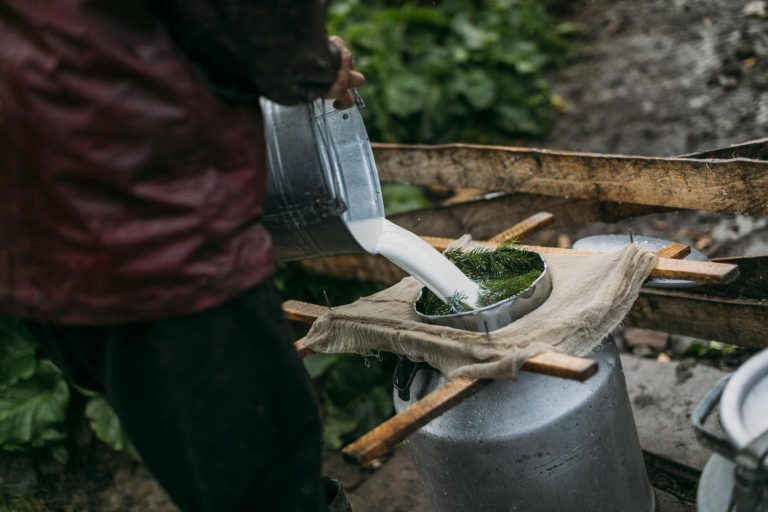
slideshow
Vasyl hires people in spring. Seven herdsmen are enough for a season. Now there are a lot of young boys among bovhars who can “run and learn”.
— We sit down at the table, drink a bottle of horilka and talk about the price. Everything is just like it has to be, — says Vasyl and laughs. — This one is the youngest, just 10 years old. He is a cowherd just like I used to be and he is dedicated too. He tells his mother he doesn’t want to go to school but to the polonyna. You have to love this job as it’s a great responsibility.
There is a chief of herdsmen who cooks, milks cows and makes cheese. There are also bovhars who graze cows and there is also the so-called vatrachok (“vatra” means “bonfire” — translator’s note), who keeps the fire alive when the cheese is being smoked.
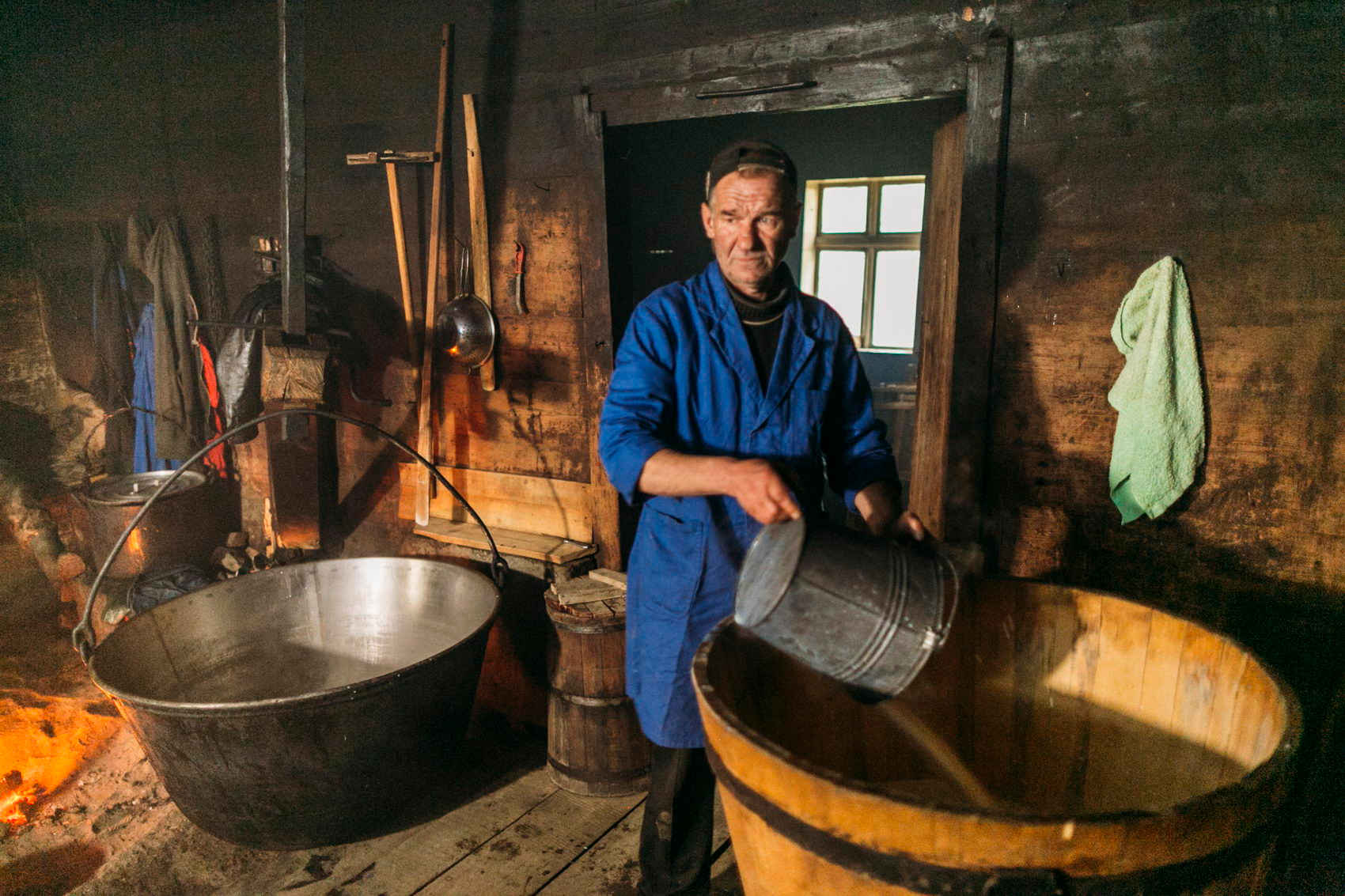
Bovhars work from 9 am to 3 pm. In autumn, one can collect 150 liters of milk a day. In spring, the number may increase up to 300 liters. This is the season when the whole podra is full of cheese.
Ivan whom locals call “Yanyk” helps Vasyl with the cheese. The man has been working on polonyna for 30 years. Ivan says he has tried other types of work including tree felling in Latvia. However, he wanted to go back home to do farming and cheese making.
— There are cases when the cow is not let out. It can get through the fence straight to polonyna. The same happens to us — eventually we come back here anyways.
In Krynta cheese is made of a cow milk. In autumn, one can make 25 kilos of cheese a day and 50 kilos a day in summer. Vasyl says:
— We are trying to change something now but we also try to stick to something traditional. It is popular now. Every country, every region makes its own cheese and tries to stick to that. So do we. People realized that it tastes good and it is eco-friendly with no supplements.
They add nothing to cheese except salt. Ivan says it is “chemistry”. They also make hleh by themselves. They just buy calf stomachs from the local people.
In the morning, they collect cream from the milk gathered in the evening and use it to make butter and sour cream. Ivan says that it will take you 5 minutes to make butter in the churn. The main thing is to keep the temperature of the cream not higher than 17°C. If it is warmer, you won’t be able to make the butter.
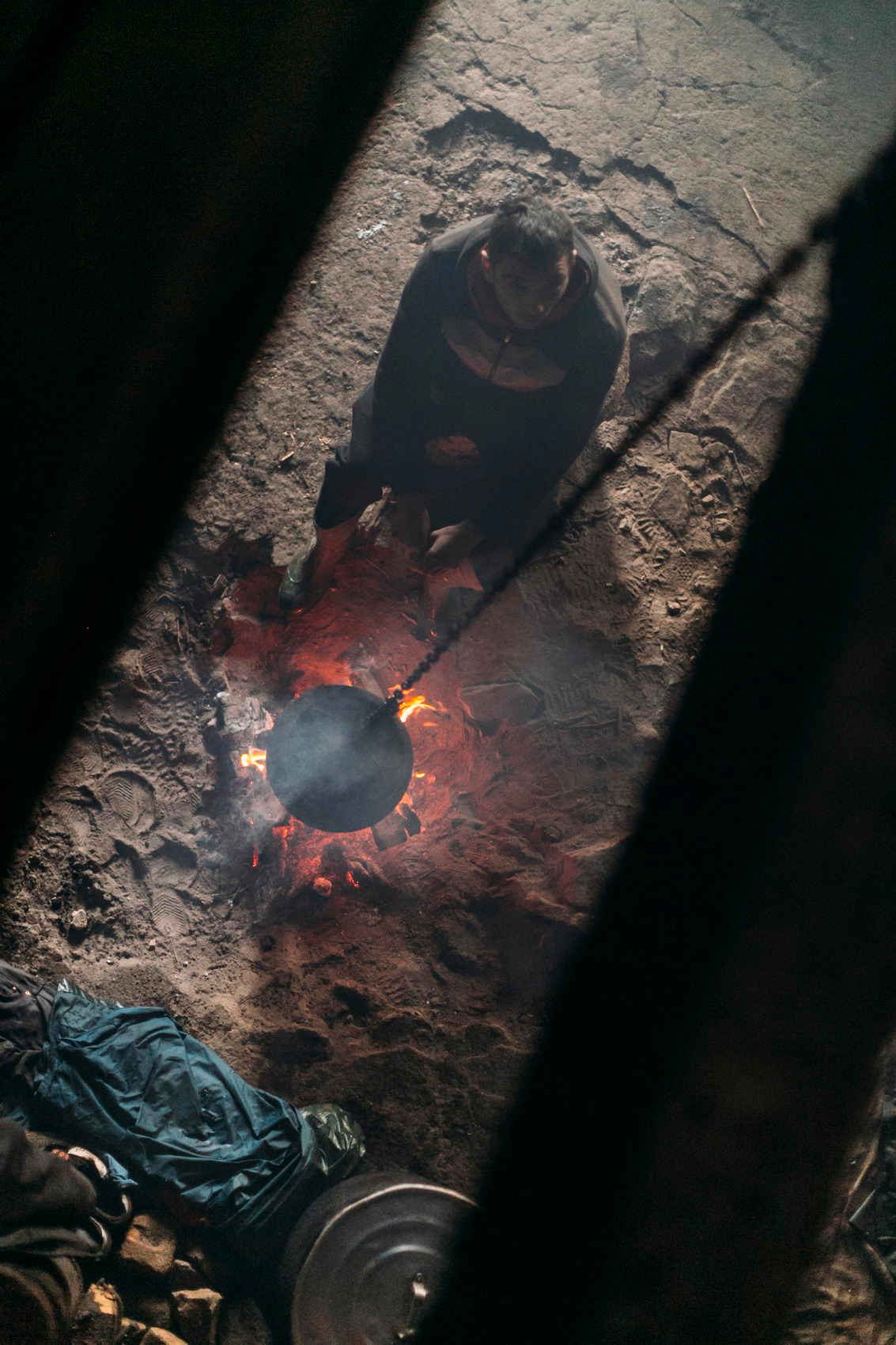
Bovhars usually sell butter and cheese and keep sour cream for themselves. Vasyl’s father helps his son sell dairies. They have customers among the locals and in Lviv. For the cheese not to get spoiled during transportation, they put it into an air-proof containers and keep them in a cool environment.
The income is never fixed.
— It depends on how you measure the income. Now I don’t have money. I give away the money that I have earned in summer to my employees. Then I sell the products that I have, and I keep that money for myself. Only in the end I know what I have earned.
Bovhars use cheese as a currency to pay the owners of the milch cows. The average price for two cows would be 130 kilos of bryndza per season. If the cow is dry, the owner pays bovhars for grazing his cow.
During the 2nd week after the beginning of the grazing period, the owners of the cows come to the polonyna and measure the amount of milk produced in the morning and in the evening. According to the local rules, 4 liters of milk yield belongs to the owners while bovhars keep the rest.
— For example, a cow produces 6 liters in the morning and 6 liters in the evening. So, the owner gets 8 liters. We multiply 8 by 8 and get 64. Thus, we have to give the owner 64 kilos of cheese in summer. We get 32 kilos of cheese from that cow. It always varies though.
Vasyl says he has orders for the next year already. The only thing he is worried about is the space, because the polonyna can accommodate a limited amount of cattle.
— Some people go, some come. Everyone returns happy from the polonyna because nothing died, nobody was killed by the thunder or wolves. Everyone is glad. Everyone liked the products.
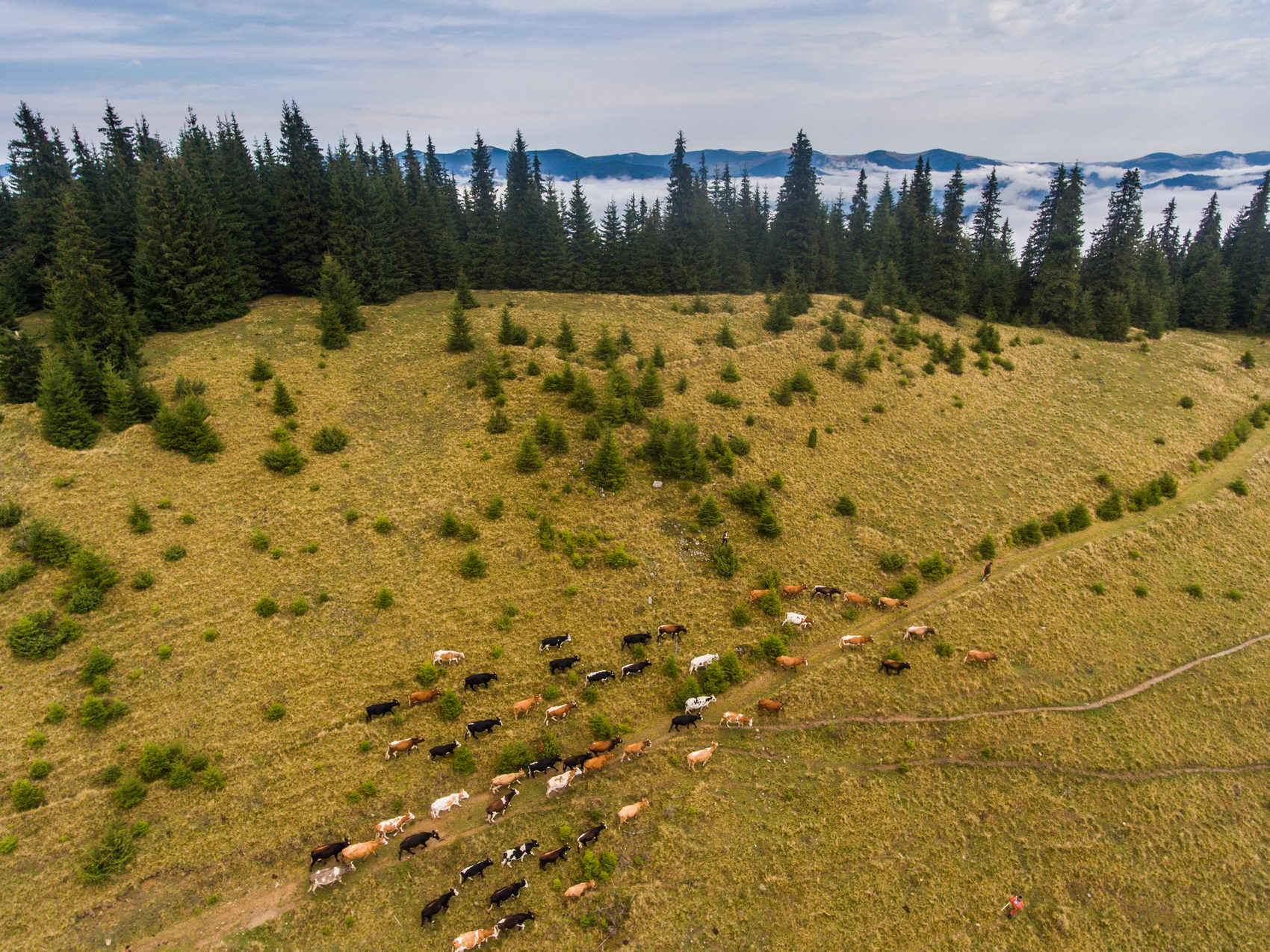
This year bovhars had no losses. The herdsman says different things can happen in the business. An animal can die of a lightning stroke or get attacked by a wolf, a lynx or a bear. The locals make noise to shoo predators away. They say that noise scares the predators away better than a gun.
— Cows react when they feel the danger. We all get up at night, start ringing the bells and repel the predators. A beast is a beast, you know.
Sometimes it happens that the cows disappear. This usually occurs in autumn. When that happens you definitely have to find that animal or you’ll have to pay the owner.
— If a bear or a wolf kills a cow nearby, we don’t bear responsibility for that cause it’s a natural phenomenon. Same relates to thunder or lightning. However, if we lose it and cannot find neither a hoof nor a tail, then we have to refund an amount of money the owner considers to be right. The latter never happened to me, — said Ivan.
In the past, when something bad happened, the locals were blowing trembitas. They had special signals and there even were tunes that were used to invite everyone to festivities.
— Now we are trying to bring those traditions back. We bought a trembita and we want to recreate those sounds. We don’t know them yet, but when you play, it is always echoing.
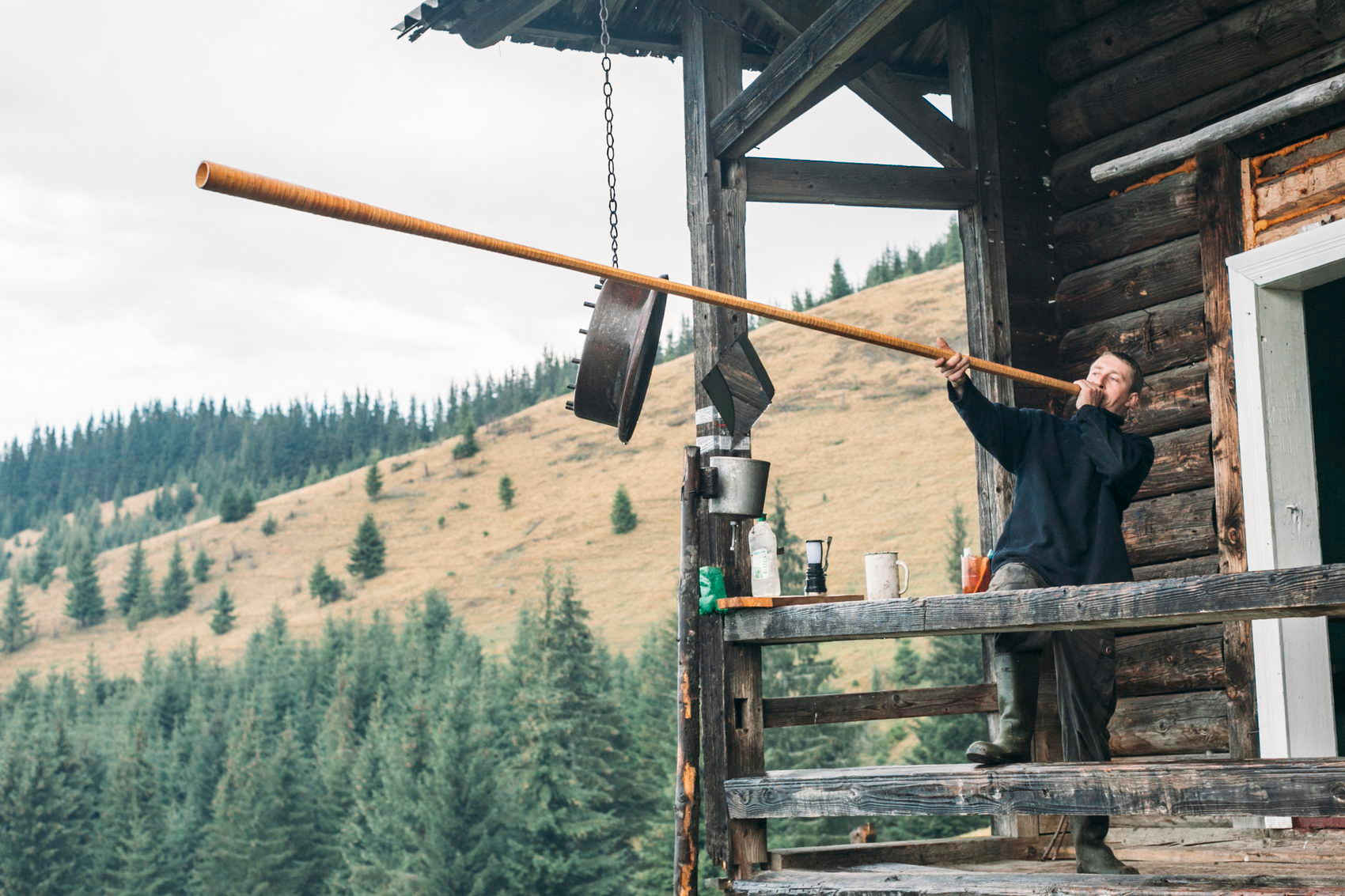
Bovhars are friends with each other. They meet, talk, and share impressions. They have their little community. Vasyl says cows would not get lost if there were more people involved in the bovharship. Now a single cowman has to look after a huge livestock.
Despite the fact that the number of cheese makers and bovhars is decreasing, the locals say the business is developing. Two years ago, for example, they opened a new polonyna for grazing.
Ivan says that not only bovhars are interested in polonyna reestablishment, but also the locals who have their own farmsteads. Moreover, this business helps to support the region. More and more tourists visit this place annually.
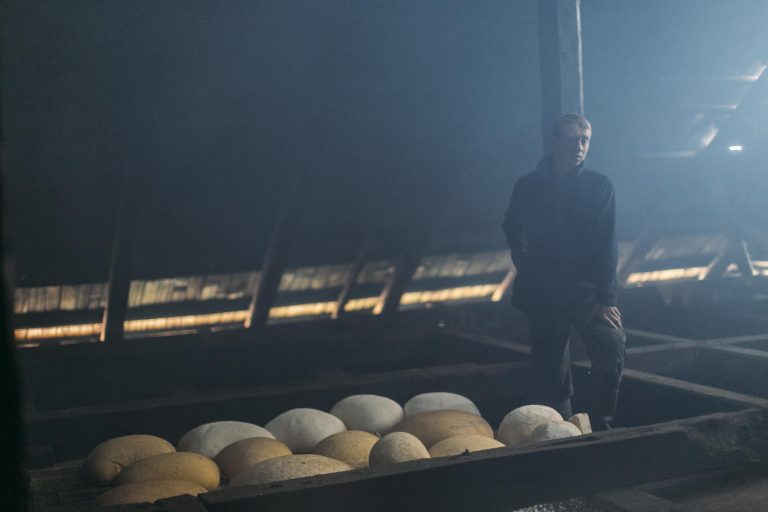
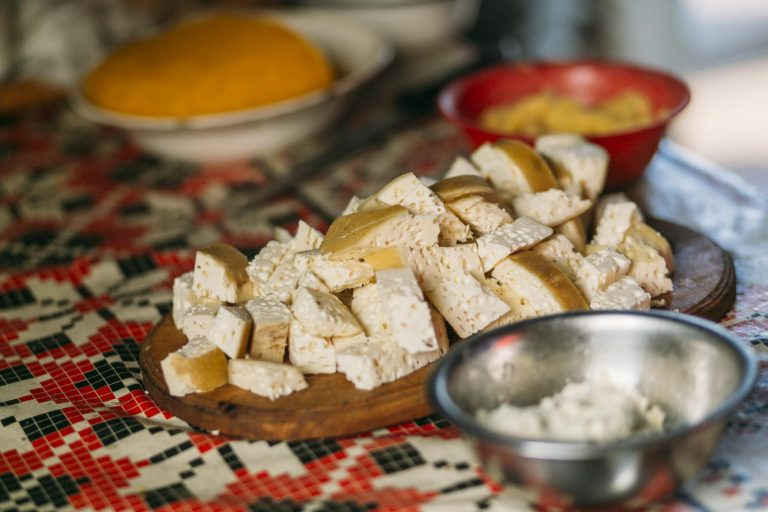
slideshow
Vasyl says that he loves what he is doing and doesn’t plan to give it up. He admits though that he misses his home in autumn. When the season is cold, Vasyl returns back home and helps his parents to keep the household. Sometimes he goes abroad for several months to earn money. Still, every year he comes back to the polonyna to keep on developing his favorite thing.
— People leave cause there’s no one to work with. Everyone is working or is too old to work. One must be young and strong. Young people like us hope that this thing will develop. It is evident that you earn more money abroad, but we also have to work here and develop our country. Then, maybe in the future it will start developing abroad. I hope that in a few years we will develop this business and our products will be in demand.

